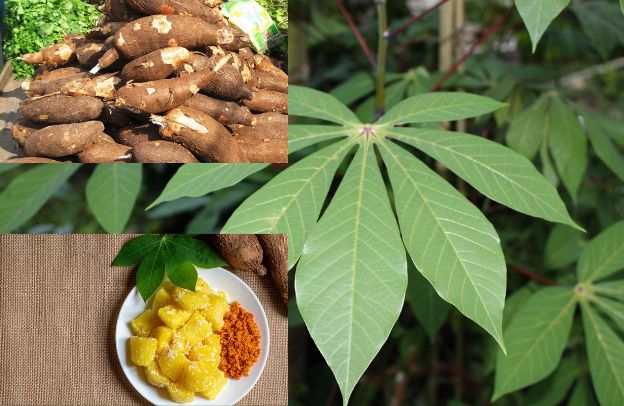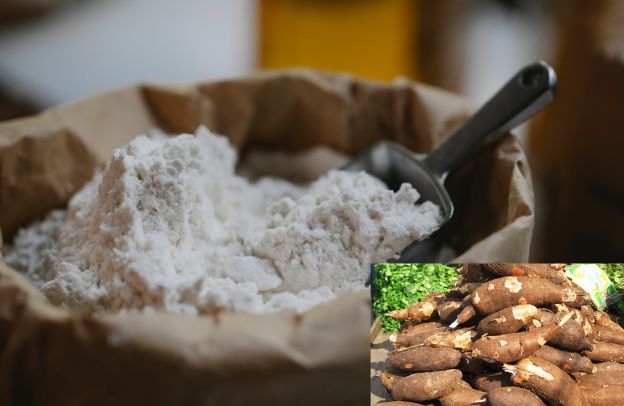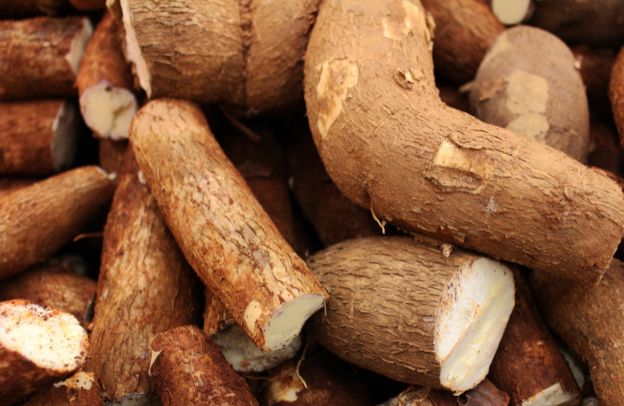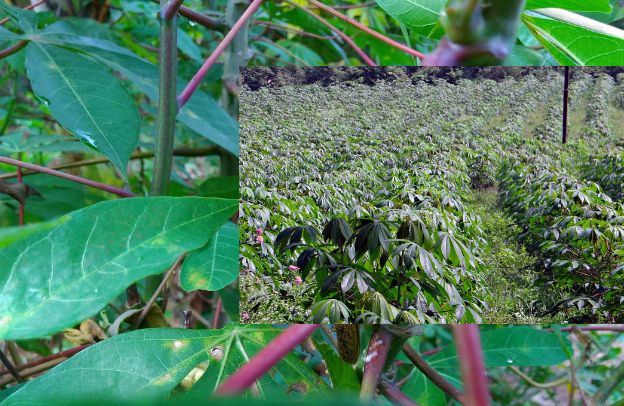Nigeria’s Agricultural and Agribusiness Potential: A Pathway for African Diaspora Entrepreneurs

Have you ever considered that Africa’s greatest economic opportunity might be buried beneath its soil? What if Nigeria’s vast farmlands held the key to unlocking both food security and generational wealth? At the World Food Prize Foundation’s Norman E. Borlaug Dialogue in Des Moines, Iowa, African Development Bank (AfDB) President Dr. Akinwumi Adesina urged investors to recognize Africa’s booming food and agribusiness sector, projected to reach $1 trillion by 2030.
Take your Business Storytelling to the next level through our Story To Asset Transformation Framework.
The annual event, a cornerstone of global agricultural discussions, centered on “Harnessing Change”, exploring innovative strategies for resilience, food security, and sustainable supply chains.
Leaders and policymakers highlighted the urgency of transforming Africa’s food systems to meet the demands of a growing population and an evolving global economy.
Africa’s Agricultural Potential: A Sleeping Giant
Despite possessing 65% of the world’s uncultivated arable land, Africa remains a net food importer—a paradox that leaders are determined to change. The 2024 Feed Africa Summit (Dakar 2 Summit) served as a turning point, bringing together key stakeholders to drive agricultural transformation across the continent. The momentum is clear: Africa must increase productivity, modernize farming, and position itself as a global food supplier.
(Learn How to Leverage Your Story through our Story To Asset Transformation (S.A.T) Framework.)
Nigeria: The Heart of Africa’s Agricultural Revolution
Nowhere is this shift more crucial than in Nigeria, a nation with immense untapped agricultural potential. From cassava and rice production to agro-processing and food exports, Nigeria offers high-growth opportunities for investors willing to bet on the future of African agribusiness.
For African diaspora entrepreneurs, this is more than just an investment, it’s an opportunity to create jobs, strengthen food security, and build sustainable wealth. But how can you, from across the ocean, tap into Nigeria’s agricultural boom? Which sectors offer the greatest financial and social impact?
In this article, we’ll explore Nigeria’s most promising agribusiness opportunities, the role of the diaspora in shaping its agricultural future, and how strategic investments can drive both economic returns and long-term development.
See also: Cassava Farming in Nigeria – A Gateway to Agribusiness Success for the African Diaspora
1. Nigeria’s Agricultural Strength: A Sleeping Giant Awakening
Revitalizing Nigeria’s Agricultural Sector: Challenges and Opportunities
As Africa’s largest economy and most populous nation, Nigeria’s agricultural sector remains a key pillar of economic growth, contributing 24% to the country’s Gross Domestic Product (GDP) and employing 35% of the labor force (National Bureau of Statistics, 2024). However, despite its significance, the sector faces persistent challenges that hinder productivity and long-term growth.
Key Challenges in Nigeria’s Agricultural Sector
According to the Food and Agriculture Organization (FAO), several structural and environmental barriers continue to limit Nigeria’s agricultural potential:
- Poor land tenure systems, restricting access to farmland
- Limited irrigation farming, making agriculture heavily dependent on rainfall
- Climate change and land degradation, reducing arable land and yields
- Low adoption of modern technology, leading to inefficient farming practices
- High production costs and poor input distribution, increasing farmer burdens
- Limited financing, restricting smallholder farmers’ ability to expand
- Severe post-harvest losses, diminishing marketable produce
- Weak market access, preventing farmers from reaching profitable buyers
These obstacles have stifled agricultural productivity, weakened its contribution to GDP, and exacerbated Nigeria’s dependence on food imports. Between 2016 and 2019, Nigeria’s agricultural imports totaled N3.35 trillion, an alarming four times higher than the N803 billion generated from agricultural exports in the same period.
Government Efforts to Transform Agriculture
Recognizing the urgent need for reform, the Nigerian government has launched multiple initiatives aimed at boosting productivity, reducing food imports, and ensuring long-term sustainability. These include:
- Agriculture Promotion Policy (APP) – Strengthening food security and rural development
- Nigeria–Africa Trade and Investment Promotion Programme – Enhancing regional agribusiness trade
- Presidential Economic Diversification Initiative – Reducing dependence on oil through agricultural expansion
Other areas that require improvement include initiatives to promote agribusiness exports, such as the Economic and Export Promotion Incentives & Zero Reject Initiative. Additionally, addressing environmental concerns through programs like the Reducing Emissions from Deforestation and Forest Degradation (REDD+) is crucial.
Efforts to combat land degradation are supported by the Nigeria Erosion and Watershed Management Project (NEWMAP), while the Action Against Desertification (AAD) Programme focuses on promoting sustainable land management practices.
See also Cassava Starch: A Golden Opportunity for African Entrepreneurs in the Global Agribusiness Landscape
Together, these initiatives aim to foster environmental sustainability, improve agricultural productivity, and enhance Nigeria’s economic growth.
It’s important to note that while these initiatives lay the groundwork for a thriving agricultural sector, unlocking Nigeria’s full potential will require sustained investment, policy consistency, and strategic partnerships with the private sector.
A Resurgent Agribusiness Landscape
Agriculture is not new to Nigeria—it was once the backbone of the economy before oil took center stage. However, a renewed focus on farming and agribusiness is gaining momentum, driven by:
- Government policies aimed at boosting local food production
- Rising global demand for food and agricultural products
- The urgent need to tackle food insecurity and reduce import dependency
Opportunities for the African Diaspora
For diaspora investors and entrepreneurs, Nigeria’s agricultural sector presents immense opportunities, from primary production to agribusiness innovations that can drive economic transformation.
Whether through cassava and rice production, value-added food processing, or export-driven agribusinesses, the potential to create sustainable wealth, generate employment, and strengthen food systems is vast.
The Key Crops Powering Nigeria’s Agricultural Boom
Nigeria is the world’s largest producer of cassava and yam, the leading producer of cowpea, and one of the top producers of rice and maize in Africa (FAO, 2024). But which crops offer the best opportunities for diaspora-led agribusiness investments?
Cassava: Africa’s Goldmine in Food and Industry
Cassava is more than just food, it is a multi-purpose crop used in flour production, bioethanol, animal feed, and even biodegradable plastics. Nigeria produces over 60 million metric tons of cassava annually, yet value addition remains low (International Institute of Tropical Agriculture, 2023).
Investing in cassava processing for exportable cassava flour, starch, or ethanol can tap into the growing global market for gluten-free and sustainable products.
Rice: Bridging Nigeria’s Supply Gap
Despite being a top rice producer in Africa, Nigeria still imports millions of tons annually to meet demand. Government policies like the Anchor Borrowers’ Program have boosted local rice production, but there remains a huge gap in quality milling and processing.
Diaspora investors can explore rice farming, processing plants, and packaging businesses to reduce imports and strengthen local food security (Central Bank of Nigeria, 2023).
Other High-Demand Crops
- Soybeans & Sesame: High-value crops with growing demand in Asia and Europe for oil and livestock feed.
- Palm Oil: Nigeria was once a top global palm oil producer. Investments in modern processing can revitalize the industry.
- Horticulture: Fruits like pineapples, mangoes, and avocados have huge export potential to Europe and the Middle East.
See also: Cassava: A Sustainable Solution to Combat Food Insecurity in Nigeria
3. Agribusiness Opportunities Beyond Farming
While farming is the backbone, the true wealth in agriculture often lies in processing, logistics, and exportation. Here are some areas where diaspora entrepreneurs can make an impact:
Agro-Processing: Adding Value for Profitability
Nigeria loses billions annually due to post-harvest losses. By investing in food processing, you can extend the shelf life of agricultural products and tap into export markets. For example:
- Cassava can be processed into flour, chips, and ethanol.
- Tomatoes can be turned into paste to reduce Nigeria’s reliance on imports.
- Palm oil refining for cosmetics and industrial use offers high returns.
Agricultural Technology: The Future of Farming
Technology-driven agribusiness is gaining momentum in Nigeria. Platforms offering smart irrigation, drone monitoring, and blockchain-based supply chain management are revolutionizing the sector. Diaspora entrepreneurs can collaborate with local farmers to implement digital solutions that improve yields and reduce waste (AGRA Report, 2023).
Exporting Nigerian Agricultural Products to the World
Unlocking Global Markets: The Role of AGOA and AfCFTA in Nigeria’s Agribusiness Growth
The African Growth and Opportunity Act (AGOA) and the African Continental Free Trade Area (AfCFTA) present unprecedented opportunities for Nigerian agribusiness exports. These trade agreements expand market access, allowing Nigerian food producers to compete on a global scale while strengthening regional trade within Africa.
However, to fully capitalize on these opportunities, Nigeria’s food processing sector must meet international quality standards and enhance industrial capacity.
Bridging the Gap: Diaspora Investors and Nigeria’s Food Processing Sector
The Nigerian food processing industry is a dynamic blend of small and medium enterprises (SMEs) and multinational corporations, driving both domestic consumption and exports. According to ResearchGate, food quality standards are critical for ensuring safety, regulatory compliance, and market expansion. Beyond consumer protection, these standards are essential for:
- Strengthening Nigeria’s position in global agribusiness
- Increasing the economic contributions of food processing industries
- Boosting trade within AfCFTA and beyond
Diaspora investors play a key role in bridging gaps in technology, funding, and market linkages to help Nigerian agribusinesses comply with international standards and expand into new markets.
Driving Food Industry Growth Through Technology and Innovation
For Nigeria’s agribusiness sector to thrive globally, embracing modern technology and production techniques is crucial. Two transformative strategies include:
- Total Quality Management (TQM) A continuous improvement approach that enhances product quality, minimizes waste, and increases efficiency.
- Automation and Digital Systems Integrating computerized food production technologies to optimize processes, reduce costs, and maintain consistent product quality.
Positioning Nigeria as a Global Agribusiness Powerhouse
By aligning with global trade agreements, prioritizing quality assurance, and leveraging technological advancements, Nigeria’s food processing industry can expand its global footprint. With the right investments and policies, the country can transition from being a net food importer to a major exporter, strengthening both food security and economic growth.
4. Challenges and Solutions for Diaspora Agripreneurs
Despite Nigeria’s potential, challenges such as inadequate infrastructure, inconsistent policies, and access to finance remain hurdles. However, these challenges also create opportunities for innovative solutions.
Financing and Partnerships
Diaspora investors can leverage funding options such as:
- Nigerian Agricultural Credit Guarantee Scheme (for local farm investments).
- USAID’s Trade and Investment Hub (supports diaspora-led agribusiness projects in Africa).
- Impact investment funds focused on sustainable agriculture.
Building a Reliable Supply Chain
Ensuring product quality and reliability requires strong partnerships with local farmers and cooperatives. Engaging in farmer training and technology transfer can improve productivity and product consistency.
Navigating Nigerian Agricultural Policies
Government policies on import bans, land use, and export regulations often change. Staying updated on regulations and working with local legal experts can help mitigate risks (Nigerian Investment Promotion Commission, 2024).
5. The Role of the African Diaspora in Shaping Nigeria’s Agribusiness Future
The African diaspora sends over $20 billion annually to Nigeria (World Bank, 2023), but shifting from remittances to direct investment in agribusiness can create sustainable wealth and job opportunities. The diaspora can:
- Establish agribusiness hubs that connect Nigerian farmers to global markets.
- Mentor young agripreneurs and introduce the best practices from global markets.
- Advocate for policies that support agricultural industrialization.
See also: Best Financing Strategies For Small And Medium-Scale Farmers: What You Need To Know
Conclusion: Are You Ready to Be Part of Nigeria’s Agricultural Revolution?
Nigeria’s agricultural and agribusiness potential is not just a national asset, it’s an opportunity for the global African diaspora to create a lasting impact. With fertile land, rising demand for food, and growing government support for agriculture, the stage is set for innovative entrepreneurs to transform the sector.
As a diaspora investor, you have the unique advantage of global experience, financial resources, and market access. The question is: Will you leap into Nigeria’s agribusiness revolution?
By investing in Nigeria’s agriculture today, you are not just securing financial returns, you are helping to feed a growing nation, create jobs, and strengthen Africa’s position in the global food economy.
Take your Business Storytelling to the next level through our Story To Asset Transformation Framework.





